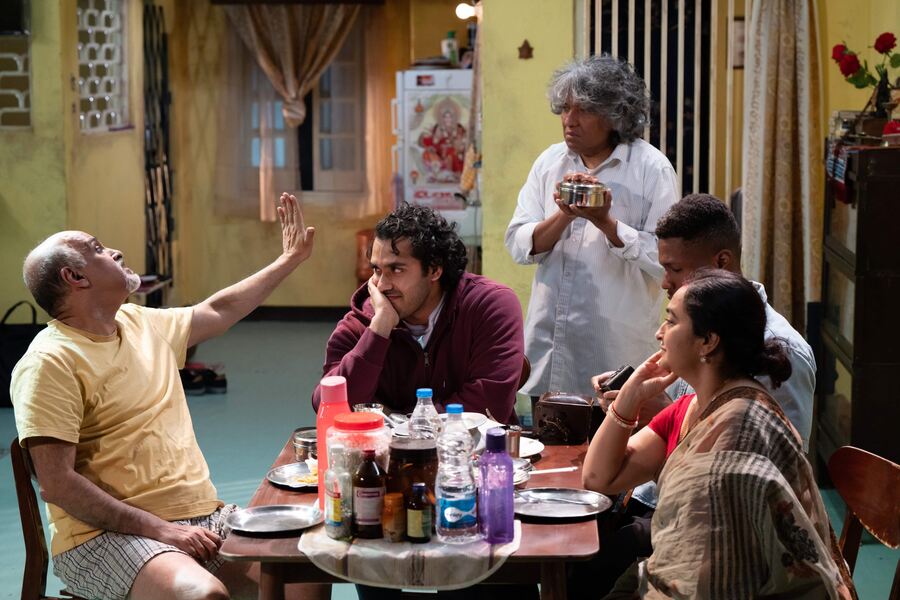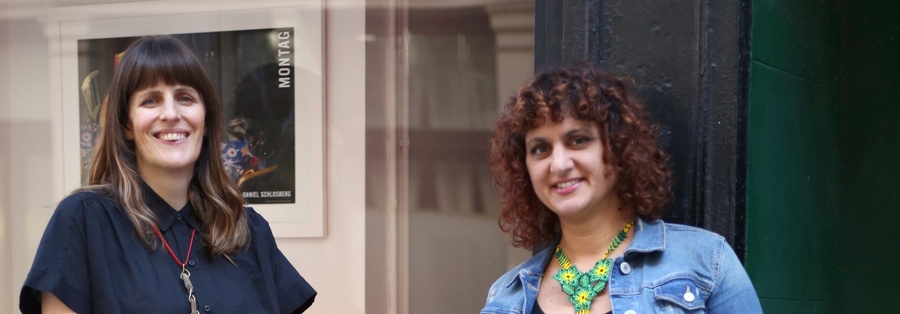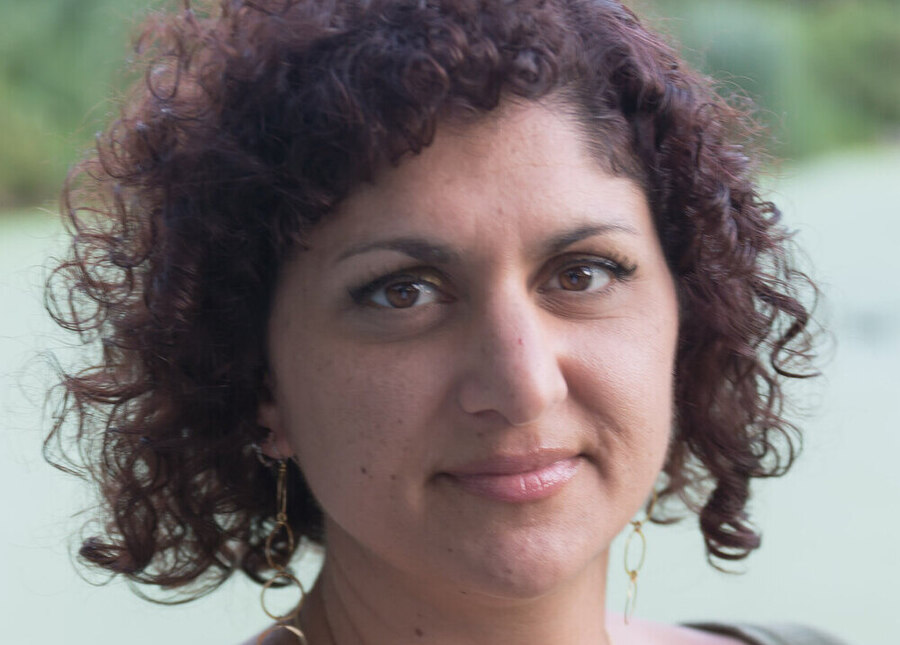Meropi Peponides had reached a point that may be familiar to many workers: After about half a decade as a producer at New York City’s Soho Rep, she felt like she’d learned all she could from the job and was ready to move onto her next chapter.
That’s when the theatre’s artistic director, Sarah Benson, and its executive director, Cynthia Flowers, asked her a game-changing question, Peponides recounted in a recent interview: “Would you be interested in the idea of shared leadership?” What followed, in 2019, was the creation of a three-pronged leadership team for the tiny but powerful theatre where such plays as An Octoroon and Fairview got their start. As Peponides described it, “The model of having a director, a producer, and a fundraiser at the head of a theatre is a really smart one.”
That model is on track to continue, even though, after four challenging but transformative years, Peponides and Benson recently left their positions at Soho Rep; Flowers is still on hand, with new leadership partners due to be named soon, along with the theatre’s next season.
For her part, Benson raved about Peponides’s “truly brilliant creative producing vision,” adding that her erstwhile colleague “consistently challenged us to deepen what we even consider to be up for conversation…Her process is all about seeking out the most exciting artistic impulses and literally changing the configuration of the producing entity to support that vision.”
I spoke to Peponides recently about this adaptive producing ethos, the dramaturgy of budgeting, and what’s next for the company she co-founded with Beto O’Byrne, Radical Evolution (for one: a musical, Canciones, inspired by Linda Ronstadt’s 1980s-era records of traditional Mexican songs).
ROB WEINERT-KENDT: What did having a tripartite leadership structure at Soho Rep allow you to do that you couldn’t do otherwise?
MEROPI PEPONIDES: Sarah and I began to collaborate even more deeply on commissions, and really crafting idiosyncratic processes with each commissioned work to bring it to fruition over a few years, often—which of course has become even more extended after the COVID closures. That kind of planning and visioning forward has allowed us to deepen relationships with artists, and allowed us to do really complex, larger-scale work than we were able to do prior to that—Public Obscenities being a recent example. Because we have such an integrated relationship between the artistic vision for the work, the arc of how it is developed, and the vision for how the production is manifested, all those things coming together has yielded strong work of a more ambitious nature than we might have otherwise been able to do.
Obviously the timing to roll out your new model wasn’t ideal, though you couldn’t have known what was coming.
Yes, right before the COVID closures, we were feeling so good; we had a whole three years mapped out, and we were really excited about all the work and we had our strategy in place. But the real test of leadership is in moments of crisis. It was definitely a real-time learning curve around who we are as an organization, how we carry out our mission, how we manifest our core values in the world. That was the impetus for Project Number One, which we started as a response to COVID as an experiment in paying artists the average of a staff administrative staff salary at Soho Rep for a season, essentially, from September to June. We began that program with eight artists on staff in September 2020, and carried through to June 2021, at which point things were opening up again. Something we learned in deep discussion with that first cohort of artists was that the idea of paying people the equivalent of administrative staff was amazing, and they would really like to be applied to productions—to making the work. So we took a deep dive into our budgets and worked closely with a bunch of Project Number One artists who are directors and actors and designers, talking to them about all the in-the-background, invisible work they are often doing before they show up at the theatre, to better understand how those processes worked. We completely overhauled our payment structure for productions, which we implemented starting with our ’21-’22 season, and now we are at the end of the second year of that experiment, with our ’22-’23 season.
Those are obviously huge positive steps. But by definition, paying more people more equitably costs more. How do you make the math work?
It’s a huge challenge. I’m not going to sugarcoat that part of it. This season in particular has been a huge challenge: We’ve had three wildly ambitious world premiere commissions, back to back. We made it work this season, but in terms of looking ahead, what we’re trying to do is be strategic with other organizational partnerships: co-productions, transfers. Public Obscenities is transferring to Woolly Mammoth in D.C. So it’s about looking more expansively at how the work of Soho Rep might live beyond 46 Walker Street, and what the further life of that work might be—particularly a show like Public Obscenities, where we had standby lines out the door every night. So we are leaning further into the notion of partnerships, many with larger venues than us, in an attempt to make the work accessible to more people, and also in an attempt to share the load of producing. That’s definitely in the thinking for the next couple of seasons.

Can you cite a highlight of your time at Soho Rep?
As I mentioned, Project Number One—I’m incredibly proud of the way we responded to the COVID closures. It was obviously a difficult time, when all of us knew so little about what the future held. I can’t pick a favorite production, that would be like asking, who’s your favorite kid? I will just say the overall sense of pride at what we’ve been able to realize in this tiny, tiny space—a very challenging space to work in some of the more ambitious design ideas and production ideas that we’ve been able to manifest at 46 Walker, in service of the work and what it’s trying to say. Something I feel really proud of is executing an amazing production design that really serves the artistic message of the piece. I’ve been able to continuously try crazier and crazier ideas in the same tiny building. I love nothing more than when people come in and say, “Have I been here before?” And I’m like, “I personally know you’ve been to at least five shows here,” but because the space is so transformed, they don’t recognize it.
You’ve worked both as an artist with your company, Radical Evolution, and as a producer with Soho Rep. Is it as satisfying to help other artists realize their vision as to create your own?
I definitely think of it as a creative satisfaction, perhaps of a slightly different sort than being involved in the authorial vision of a piece. Early on in my time here, I realized that what I do at Soho Rep and what I do at Radical Evolution are fundamentally different, but absolutely linked. Because I’m an artist and I understand the deep gut feeling of putting yourself out there and making a work and trying something new and not knowing if it’s gonna succeed, I have such deep empathy for that, and I understand how important those perhaps seemingly small details can be. I feel like being an artist has informed my producing in a really vital way. And I’ve been able to work on such a wide range of work with artists who work in very different ways to how I work, and I learned from that every time. I think that artistic producing is about meeting the work with what it needs in a strategic way, but also in an artistically informed way. It’s the craft of making a thing in three dimensions that I really get so much satisfaction out of.
“Making a thing in three dimensions” could also describe directing or designing. But as a producer you work on yet another dimension: the spreadsheet.
Absolutely. One of my dear friends and mentors, Melanie Joseph, who ran the Foundry Theater for so many years, always talks about the dramaturgy of budgeting—like, what does it mean that you’re putting this amount of resources into this aspect of the show? What’s the ethics of that? I think about that quite a bit. I’ve just always felt from the early days of working in the theatre that the artistic and financial decision-making are two sides of the same piece of paper; they really can’t be separated, because everything you want to do costs money, and someone’s got to deal with that. I realized early on that I was decent at it, I didn’t mind doing it, and it was a way I felt I could participate in a meaningful way. So I started line-producing, and then after a few years realized, “What are the things I could do if I was more involved in the artistic vision and understood better what these artists meant from the very beginning of work, and could help them carry that through and make those decisions along the way?” So this role has been a real manifestation of that dream in a way.

Last question: What do you think is the secret to Soho Rep’s success?
We really give artists a whole bunch of autonomy, and we’re always in ongoing conversation. I try to work with artists who make, especially the big decisions, and even sometimes the small ones, around how their work is realized and around how it lives in the world. For the most part that has served us really well. We really value artistic autonomy, writ large, and see artists as thought leaders. Following their impulse around both what the show is and how it lives in the world has always served us. Sometimes that impulse is a little too large to fit into our theatre or our budget, at which point we always have a conversation and try to collaborate on what that solution looks like. To go back to Public Obscenities, we were like, well, this is a really good play, but it’s gonna require six Bangla speakers, one of whom also speaks English with an American accent, all of whom have to be incredible actors, because it’s a very specific type of naturalism that wants to happen in this piece. How are we going to do that? Well, in collaboration with [playwright Shayok] Misha [Chowdhury] and our casting director, we didn’t necessarily know where those folks were coming from or how we were going to find them, but we all sort of held hands and did it together. But if I had to say, “I need you to explain to me exactly how this is going to happen before committing to it,” I think most of Soho Rep productions never would have occurred.
Rob Weinert-Kendt (he/him) is editor-in-chief of American Theatre.


